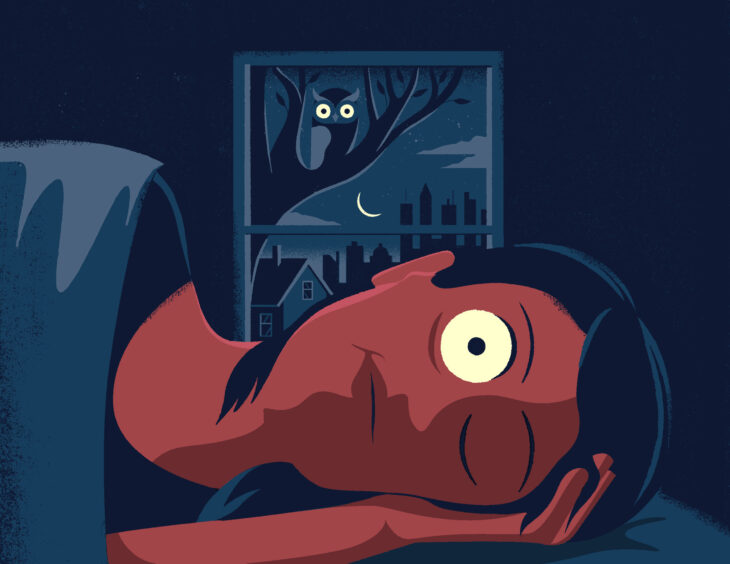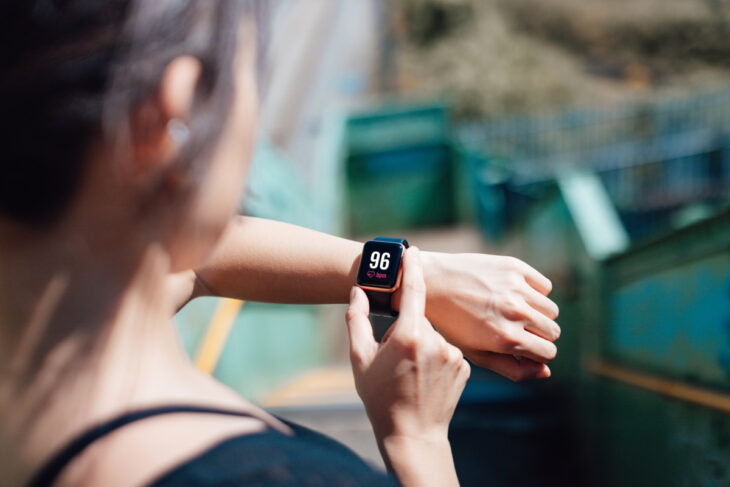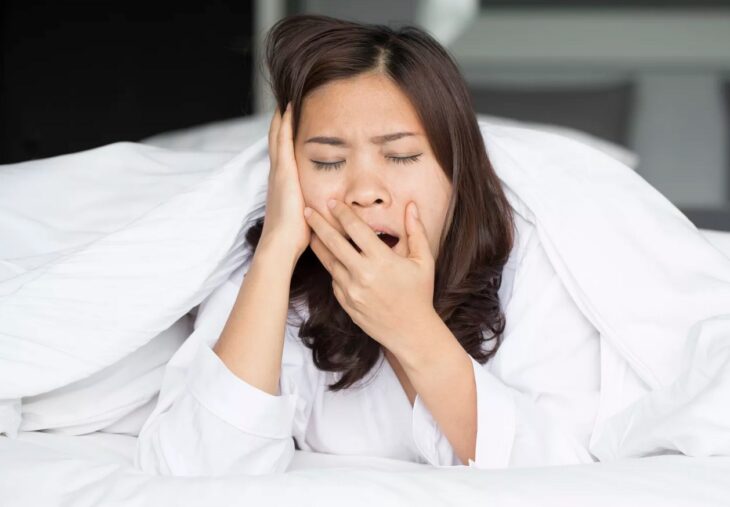Activity tracker smartwatches have become extremely popular recently and they can monitor everything from oxygen consumption to your heart rate to the number of steps taken per day. Smartwatches can also give insight into your sleeping patterns, which is probably your biggest source of inactivity.
Studies have proven that the amount of sleep we get per night does not always indicate how well we have slept. The sleep duration along with the sleep quality should be examined – especially if you are an active person that wants to get the most from your fitness activities. If you haven’t slept well, it’s hard to remain active during the day.
And if you are having trouble with your sleep you first need to track it and make notes before you move on to improving it. What you track you can improve. If you don’t know where problematic areas are, you will not know on which specific thing to focus.

Source: nytimes.com
Typical Sleep Cycles
During the night you go through different sleep stages that range from light to deep sleep. It starts with the lighter sleeping stages that progress to a deep slumber. The body repairs and grows itself when you are having a deeper sleep and it is during this time when the immune system also gets a boost.
The rapid eye movement stage of sleep, also known as REM, is the final stage in the cycle. This is when you will have dreams and your brain becomes more active.
The cycle from light to deep to REM repeats itself during the night approximately every 100 minutes. As well, the REM cycles get longer as you continue to sleep.
Sleep tracking smartwatches can help you recognize your sleeping patterns and habits. You’ll be able to monitor how well you are sleeping and the different factors that may influence the amount or the quality of your sleep.

Source: freepik.com
Sleep Tracking Smartwatch Functions
The features vary from one device to the next but some of the most common capabilities found on smartwatches that monitor sleep include:
Sleep quality – A sleep tracker can detect how often your sleep is interrupted during the night. This can include tossing and turning as well as waking from sleep. Some scientist argue that other than getting eight hours of sleep, the quality of sleep is just as essential if not even more important. After a couple of weeks of tracking, you will be able to find patters in your sleep quality and see what you can do about it.
Sleep duration – Keep track of how long you’re sleeping per night. A sleep tracking smartwatch will record the time you fall asleep and when you start stirring in the morning. This is yet another indicator of a good night’s sleep.
Lifestyle monitoring – Some watches offer the capability of entering information regarding lifestyle factors that could hinder your sleep such as your stress levels, the last time you ate, and the amount of caffeine you have consumed. This can sometimes give us a lot of valuable information because we are all different. For example, when you sleep might depend on your shift at work. Working a second shift is completely different from working the first one. You will probably go to bed later and wake up later just as well.
On the other hand, some people are night owls and they like to do things when everyone goes to sleep. Whether it is studying or something else, but this is what works for them – by monitoring their lifestyle, they can see whether any changes should be made to improve the quality of their sleep.
Environmental factors – Some smartwatches will monitor the temperature and how much light is in your bedroom. It is known that it shouldn’t be too hot or too cold in your bedroom. In fact, lowering the temperature, especially during the winter is key for good sleep. Also, don’t make the room to dark by drawing the shades on fully because you will not be able to wake up in the morning. And if it is too bright, you won’t be able to fall asleep. Find a balance and see if you can be woken up by natural light because that would be perfect.
Sleep phases – Many sleep tracking watches also keep track of your sleep phases and ensure that your alarm goes off during a phase when you aren’t sleeping as deeply. This may make it easier for you to wake up refreshed in the morning. This is a great thing because when the cycle is not finished and you wake up half-way through it, you will feel groggy throughout the day. Adjusting your alarm to your sleep cycle means that you will wake up 10 minutes later or 20 minutes earlier, but always somewhere around that time when the cycle ends. You will not be late for work and you will be well rested.
These are only some of the common feature tracking watches offer. There are some less common ones, but it boils down to what you want to track. Perhaps getting down the sleep quality and duration as well as sleep phases seems to be more important than lifestyle monitoring. The reason is that you are already familiar with your lifestyle and you pretty much know when you go to sleep and what suits you. What you don’t know is whether you are getting enough quality sleep.

Source: sharecare.com
Conclusion
Sleep tracking watches provide you with critical data that you can reflect on to make changes to your lifestyle. You’ll be able to spot trends and find out what is negatively or positively influencing your sleep. In turn, sleep smartwatches will allow you to perform better during the day and may also raise your mood levels. To improve the quality and duration of your sleep, learn about the different sleep features offered on smartwatches here.
